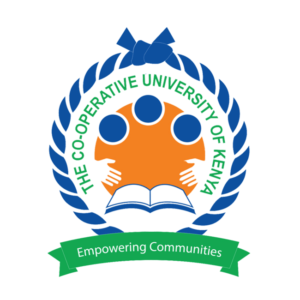By Meshack M. Ngangi | Friday, March 14, 2025
The rapid evolution of the education industry demands and the growing need for skilled labour in Kenya have placed significant emphasis on the quality of Technical and Vocational Education and Training (TVET). To ensure the effectiveness of TVET programs offered in the University TVET Institutes and other institutions, the Technical and Vocational Education and Training Authority (TVETA) plays a crucial role in regulation and accreditation processes. Institutions need to adopt effective Internal Quality Assurance (IQA) systems, Competency-Based Education and Training (CBET) frameworks, and Competency-Based Education and Training Assessment (CBETA) methodologies. In light of this, The Co-operative University of Kenya’s Institute of Technical and Vocational Education and Training (I-TVET) organized a capacity-building workshop between 10th and 14th March 2025, under the auspices of TVETA, to equip TVET staff with the necessary knowledge and skills to enhance curriculum delivery and assessment.

Speaking at the opening ceremony on Monday, 10th March 2025, the CUK-ITVET Director, Dr. Daniel Lang’at said, “This five-day workshop is aimed at strengthening participants’ understanding of Internal Quality Assurance (IQA) mechanisms in TVET institutions in line with TVETA standards, enhance knowledge of Competency-Based Education and Training (CBET) models and their implementation as prescribed by TVETA, and provide practical insights into Competency-Based Education and Training Assessment (CBETA) approaches in compliance with TVETA regulations.”
Additionally, it sought to improve the capacity of TVET staff to align training programs with industry needs and Kenya’s National Qualifications Framework (KNQF) while fostering collaboration and experience-sharing among TVET professionals within the TVETA framework.
Dr. Calvins Were elaborated to the participants through one of the key areas of Internal Quality Assurance (IQA) in TVET institutions, emphasizing its importance in ensuring the credibility of training programs. The staff from I-TVET explored how to establish and maintain effective IQA systems as per TVETA requirements, the role of TVETA in accreditation, compliance, and monitoring, and strategies for continuous improvement to meet national and international quality standards. Another critical theme explored by Dr. Were was the overview of Competency-Based Education and Training (CBET) and Assessment processes, where discussions focused on understanding CBET principles and their relevance to industry-driven education in Kenya. The workshop addressed the development of competency-based curricula under TVETA guidelines, integration of workplace-based learning into CBET programs, and engagement of industry stakeholders in curriculum development and implementation.
Ms. Janice Bogita explored in detail Competency-Based Training (CBET), focusing on the key principles of CBET and how they align with TVETA’s assessment standards. Participants gained insights into the development of training and assessment tools to measure competence based on TVETA-approved standards, strategies for formative and summative assessment in CBET, and methods to ensure reliability and validity in competency-based training. Moreover, the workshop introduced concepts of TVET quality assurance and its benefits, emphasizing continuous monitoring and evaluation to ensure that training programs meet the required standards. Accreditation and certification under TVETA were highlighted as key factors in maintaining institutional credibility, improving funding opportunities, and increasing enrollment.
The workshop facilitator, Ms. Janice Bogita, also addressed the quality assurance cycle and ability models, detailing how institutions can systematically enhance training quality. The quality assurance cycle includes planning, implementation, monitoring and evaluation, and review and improvement. These steps ensure that objectives, policies, and standards are well established and consistently refined. Furthermore, ability models in TVET were discussed, focusing on knowledge-based, skill-based, competency-based, and adaptive models that ensure a well-rounded education for learners to meet industry needs.
Another key aspect explored by Ms. Bibiana Otieno during the workshop was the Input, Process, and Output (IPO) model, which serves as a fundamental framework for evaluating the effectiveness of TVET programs. The input phase includes the resources required for training, such as curriculum, facilities, instructional materials, trainers, and student entry qualifications. The process phase focuses on how training is delivered, incorporating teaching methodologies, assessments, workplace-based learning, and adherence to CBET principles. Finally, the output phase examines the outcomes of training programs, including the competency levels of graduates, employability rates, industry satisfaction, and certification under TVETA. By understanding and implementing the IPO model, TVET institutions can enhance the efficiency and effectiveness of their training programs while ensuring alignment with national and industry needs.
As explained by Mr. Alfred Mwanzia, to ensure a hands-on learning experience, the workshop employed interactive and participatory methods, including expert presentations by TVETA officials and education specialists, group discussions to encourage peer learning, case studies and practical exercises to apply knowledge in real-world scenarios, and panel discussions that facilitated dialogue between TVET staff, policymakers, and industry representatives. By the end of the workshop, participants had gained a deeper understanding of IQA, CBET, and CBETA within the context of TVETA regulations. They also developed actionable strategies to enhance quality assurance mechanisms in their institutions, strengthened their ability to implement CBET effectively, acquired practical skills in developing and conducting competency-based assessments, and established professional networks for ongoing knowledge sharing and collaboration.
The capacity-building workshop on IQA, CBET, and CBETA under TVETA marked a significant step for CUK’s I-TVET toward improving the quality of TVET programs. By equipping TVET staff with the necessary tools and methodologies, the University invested in enhancing their training effectiveness, ensuring that Diploma and Certificate graduates meet industry standards, and contribute to national economic development under the Bottom-up Economic Transformation Agenda (BETA).
